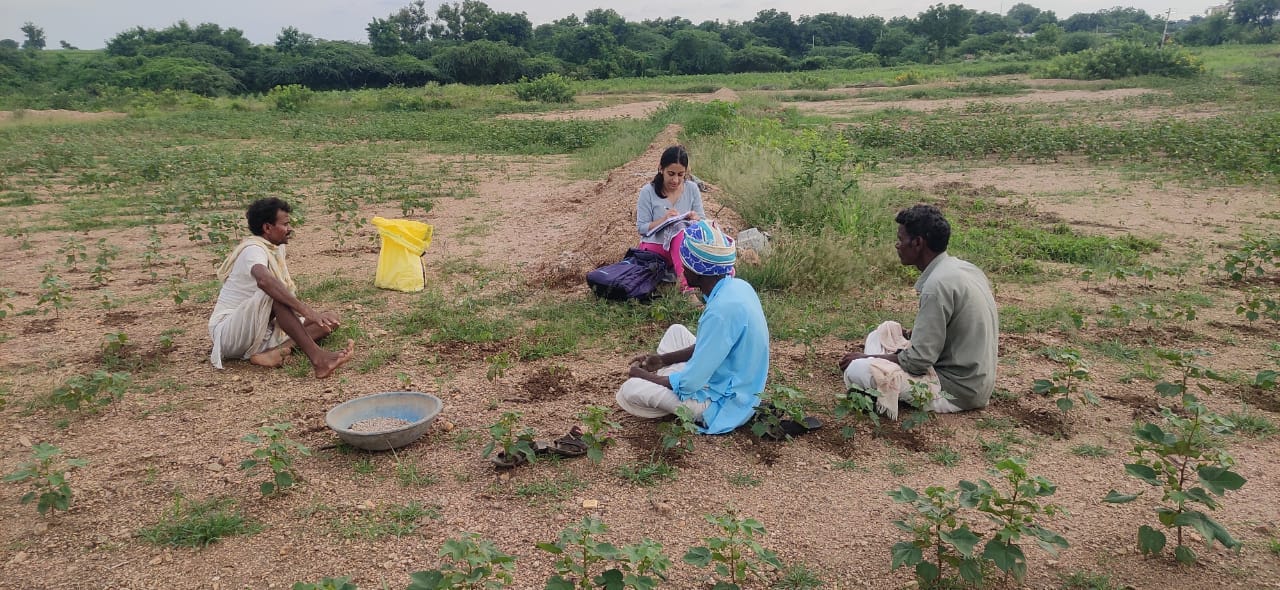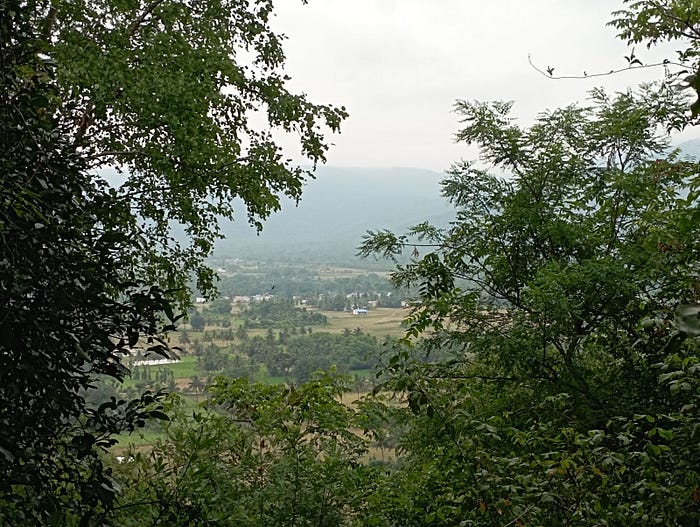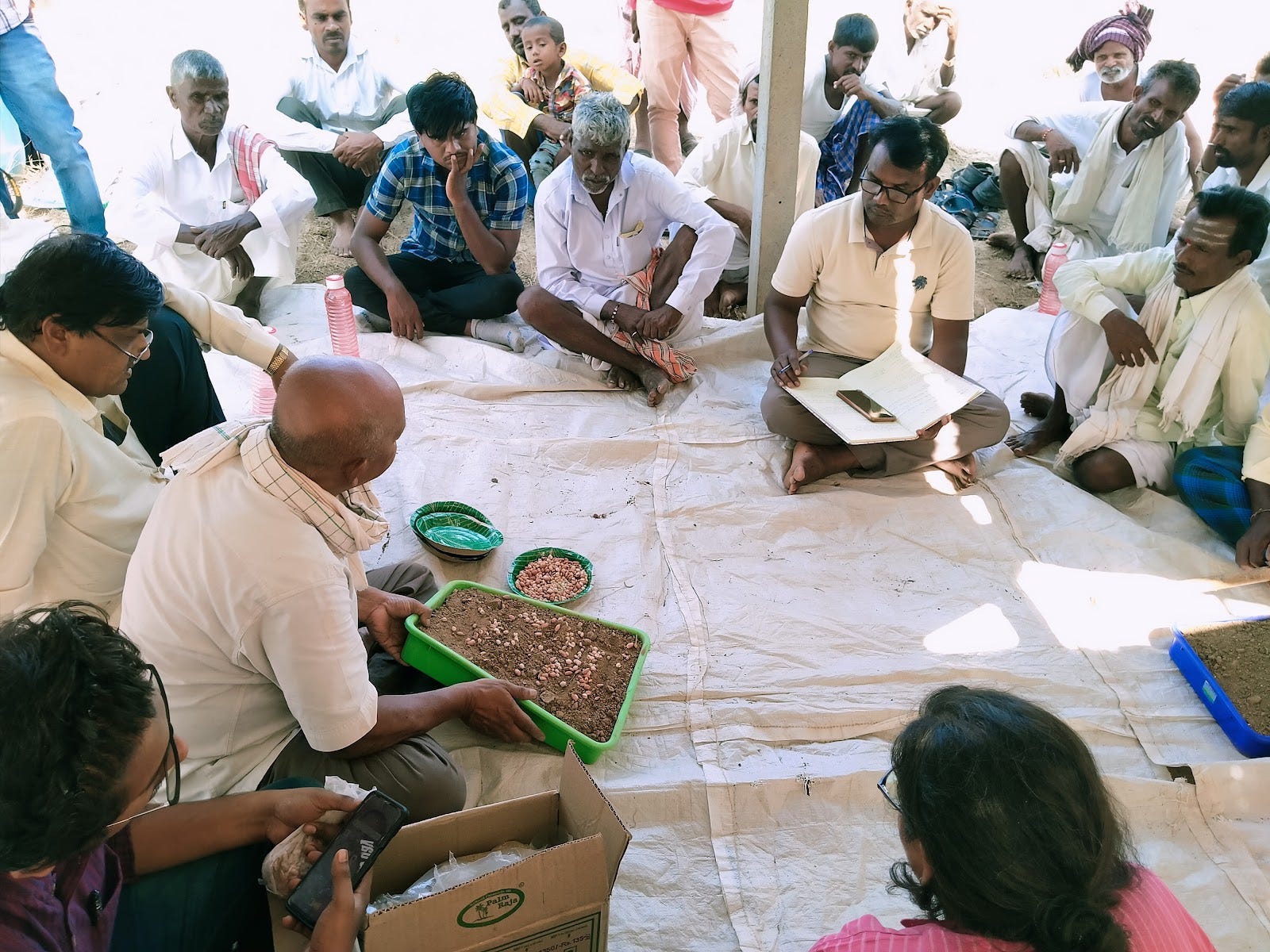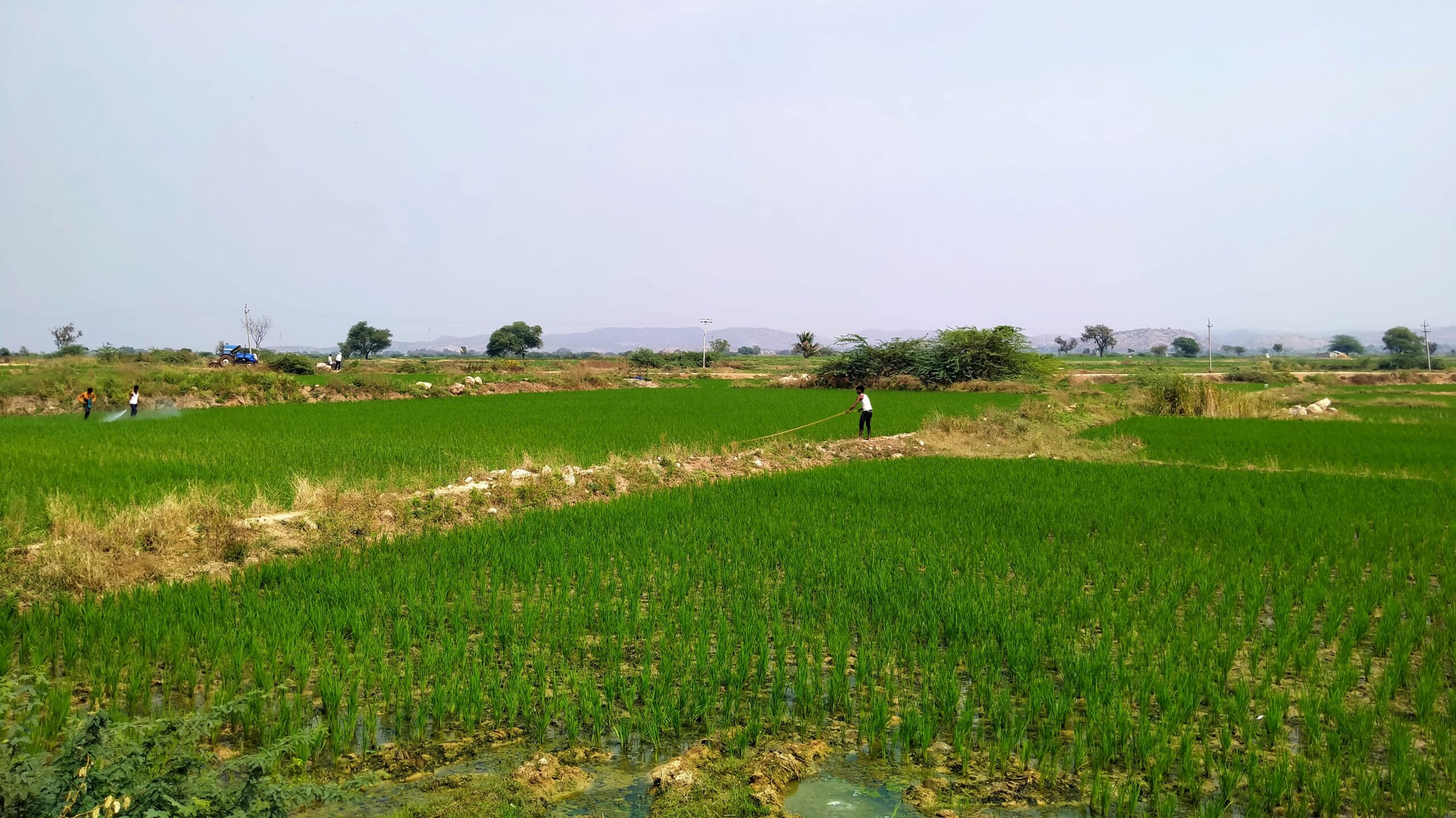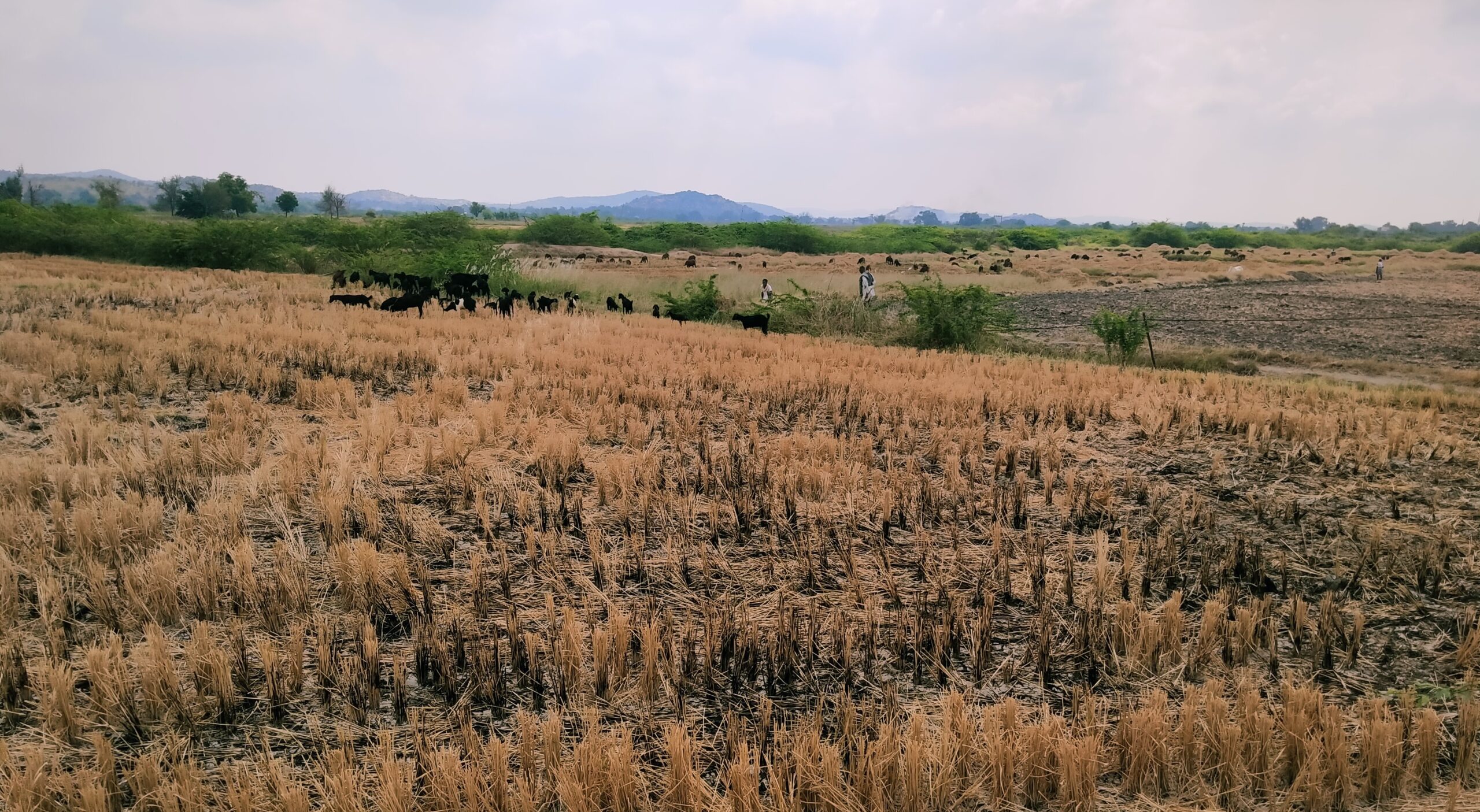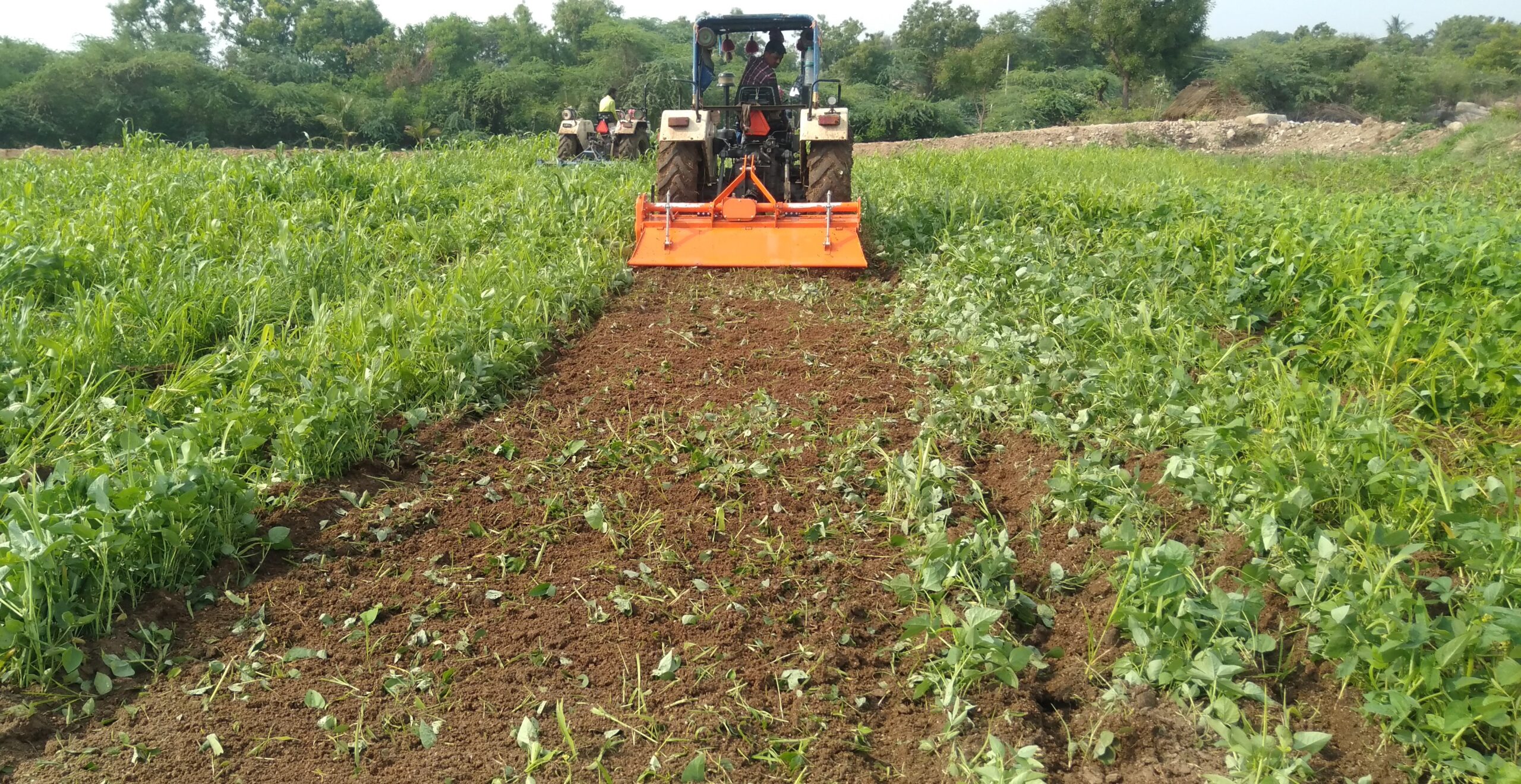We Need More Agricultural R&D: Dr Ashok Gulati at WELL Labs Launch
Agricultural economist Dr Ashok Gulati delivers the keynote address at the launch of WELL Labs at the India International Centre in New Delhi on July 26.
WELL Labs was formally launched on July 26, 2023, at the India International Centre in New Delhi.
Click here to read more about the keynote lecture delivered by Dr Gulati, and find detailed notes on the panel discussion. Speakers talked about what it will take to deliver a future for rural India that is both ecologically secure and economically vibrant.
In a wide-ranging talk on water use in agriculture and the need for innovative policies at the launch of WELL Labs, leading agricultural economist Dr Ashok Gulati underlined that investing more in research and development in agriculture would yield massive returns. ‘This is the time we need to invest and adapt to climate change,’ he said.
He was delivering the keynote address at our launch event organised on July 26 at the India International Centre in New Delhi. WELL Labs is a new environmental research and innovation centre under the Institute for Financial Management and Research. President of IFMR, Mr. Kapil Viswanathan formally launched the new organisation.
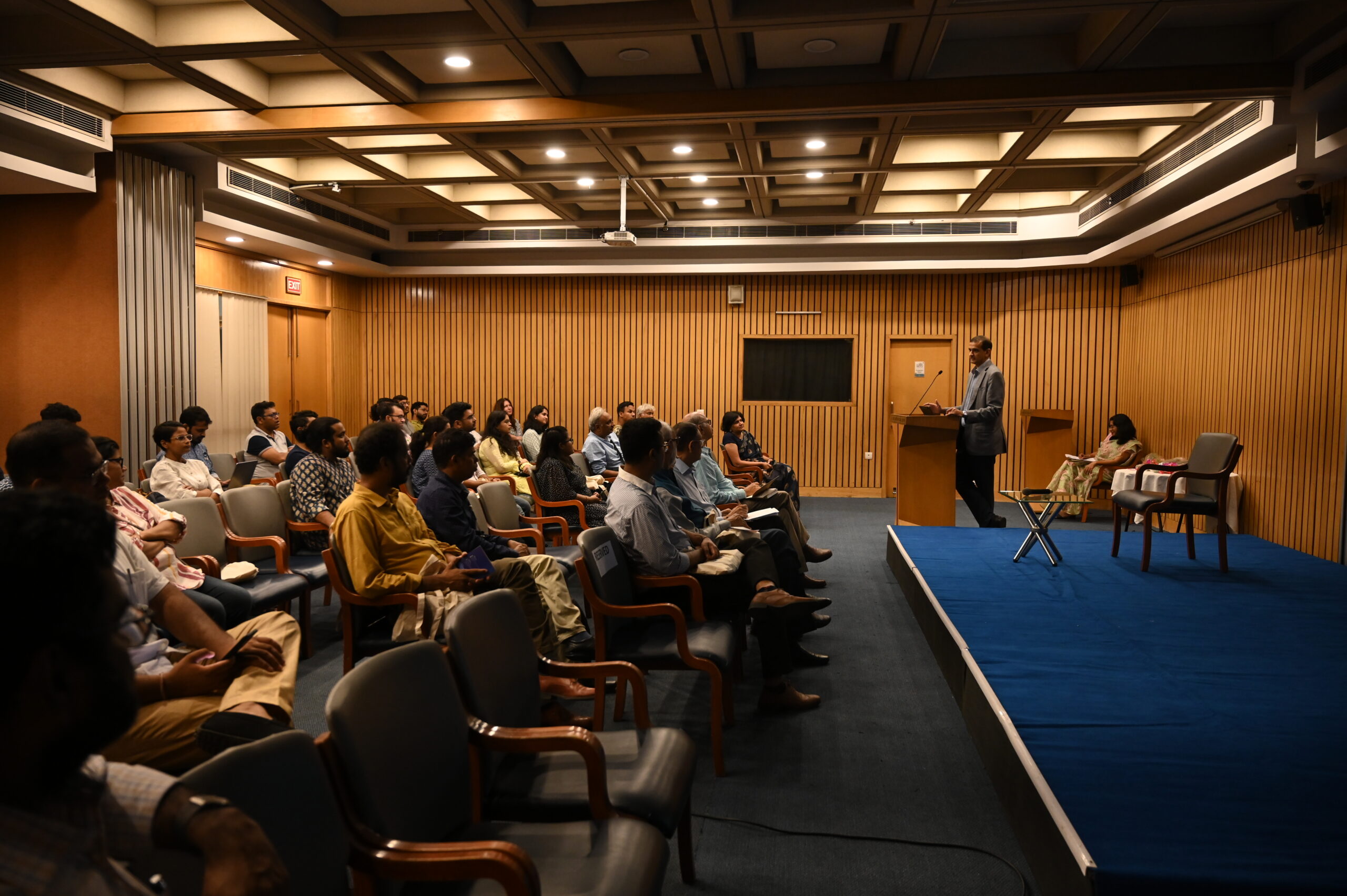
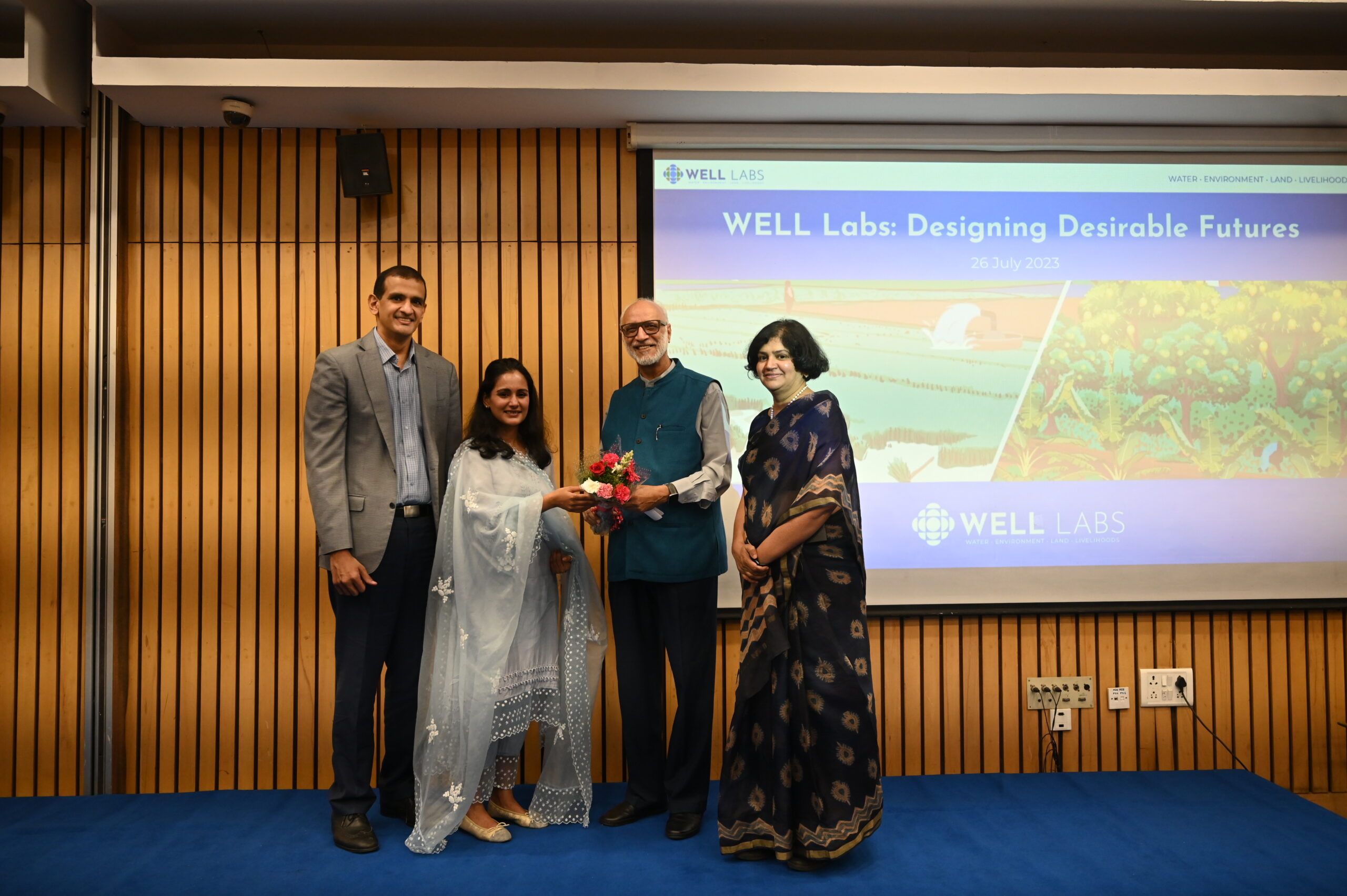
(Left) President of IFMR, Mr Kapil Viswanathan speaks to the audience at India International Centre in New Delhi on July 26. He formally launched the new centre that joins the IFMR umbrella of organisations. (Right) From left, President of IFMR, Mr Kapil Viswanathan; IFMR Board Member, Ms Nayantara Kothari; agricultural economist, Dr Ashok Gulati; and WELL Labs Executive Director, Dr Veena Srinivasan.
The launch event also saw the India Representative of the International Water Management Institute (IWMI), Dr Alok Sikka, release a report titled, ‘Farmer Responses to Solar Irrigation in India’. The report documents key findings from a novel modelling study conducted by WELL Labs Executive Director Dr Veena Srinivasan and the head of the Products and Platforms team at WELL Labs, Anjali Neelakantan.
‘De-risking’ alternative crops
Dr Gulati, who holds the post of Distinguished Professor at the Indian Council for Research on International Economic Relations (ICRIER), delved into some of the key themes that emerged in the report as well — for one, that there needs to be an enabling policy environment for farmers to shift to more sustainable crop choices and practices.
It is essential to ‘de-risk’ the marketing of alternative crops, he said.
‘We cannot talk of any change if a farmer’s income falls. If you ask them to shift from rice to millets, they’ll ask about the Minimum Support Price and procurement. The challenge is to increase farmer income and still align the system to more sustainability.’
He laid out the larger context for the current state of water-intensive practices in states like Punjab. The country underwent a ‘massive transformation’ from the 1960s, when food insecurity prevailed in a ‘ship-to-mouth economy’, to present-day India, which is the largest exporter of rice in the world. But this has come at the price of water, he said, explaining that the water table in Punjab is depleting at the rate of one metre per year. ‘The problem is not that we don’t have water, but that we don’t know how to use it’.
WELL Labs and the need to get our numbers right
Talking about the relevance of organisations like WELL Labs, Dr Gulati also emphasised that, as researchers, ‘we need to get our numbers right’. He said that non-governmental organisations can play an important role in conducting pilots in places that are severely drought-prone like Raichur, where WELL Labs is working closely with grassroots organisations and farmers to arrest land degradation and switch to practices that could allow them to earn more while sustaining natural resources.
In the Q&A that followed his talk, Dr Gulati reiterated the need to expand the definition of productivity to encompass sustainability indicators as well. ‘We should stop talking about productivity per hectare and instead look at
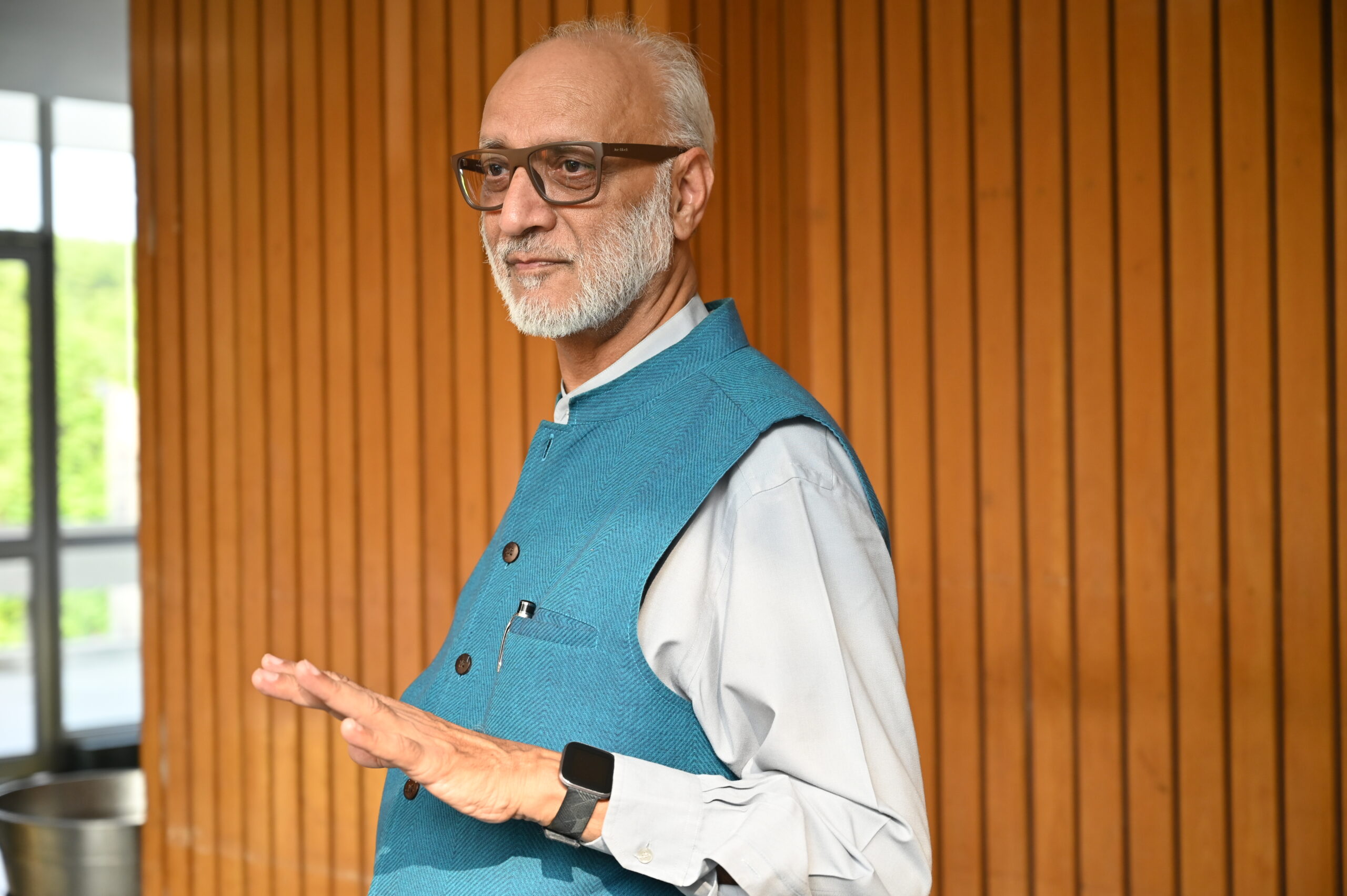
productivity per cubic metre of water,’ he said, using Punjab as an example again — the state might be highest in terms of production of rice per hectare but lowest in terms of productivity per cubic metre of water.
The net taxation of Indian agriculture
Dr Gulati cited from existing literature to explain how India is among a small minority of countries where the agricultural sector faces net taxation rather than net subsidisation. This is counter intuitive given government subsidies around pesticide use and free electricity. ‘With export controls, export duties and stocking limits, what are you doing? You’re bringing the outputs prices down. So, there is a huge consumer bias in the system,’ he said.
On one side, your foot is on the accelerator — with all these input subsidies. On the other, your foot is on the brake. At the drop of a hat, the moment prices go up, the system works to bring it down because the consumers are very vocal. This means policymakers are tightrope walking.
Dr Gulati ended his talk with this analogy and how, over a period of time, there is a discernible trend of the brake being pushed more often. The result, he concluded, is negative subsidy, i.e. the net taxation of Indian agriculture.
Panellists discussed ‘Research and Innovation for an Uncertain Future’
The launch event included a panel discussion with Dr Alok Sikka, Dr Shambu Prasad, Professor of Strategic Management and Social Sciences at the Institute of Rural Management Anand (IRMA); and Amandeep Panwar, CEO of agritech company BharatRohan.
Dr Prasad drew from his extensive experience to talk about the role that women-led farmer collectives and self-help groups play in driving the shift to more sustainable practices. ‘Removing the gender element from sustainability is dangerous. If women are not involved in the whole process of transition, the chances we will adopt sustainable transitions is low,’ he said. He also stressed that academics and development practitioners need to work together in the spirit of collective inquiry and experimentation in agricultural landscapes.
Read | From Coconut Chips to Wild Honey: When Consumers Demand, Producers Supply
Based in Bengaluru, WELL Labs addresses land and water issues by working closely with governments, businesses, multilateral institutions and civil society groups to co-create a robust research and innovation agenda. The centre is broadly split into two programmes — Urban Water and Rural Futures. The former addresses challenges related to wastewater management and floods, and the latter addresses degradation of agricultural land and falling incomes among smallholder farmers in India’s dryland districts.
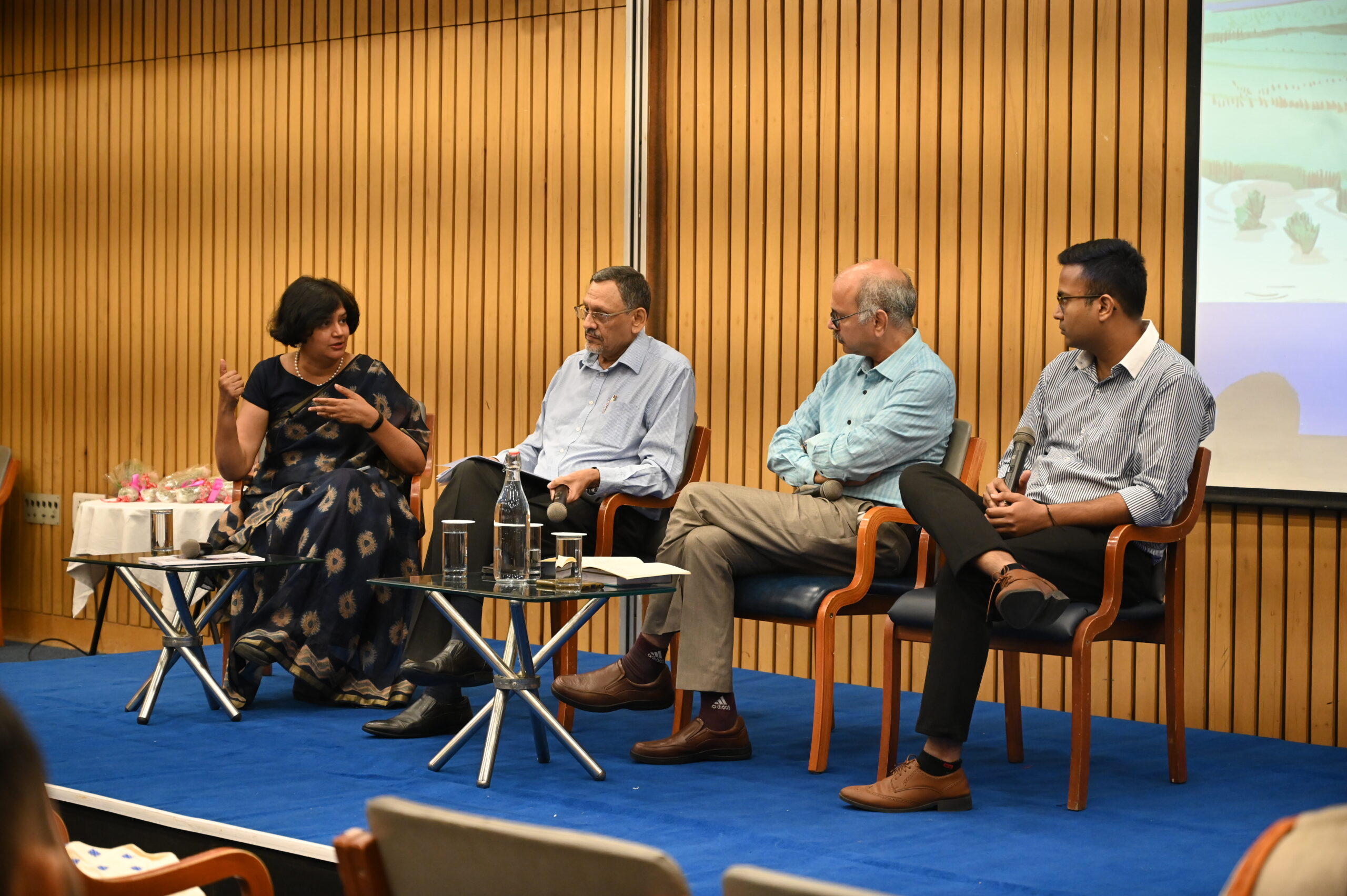
From left, WELL Labs Executive Director, Dr Veena Srinivasan, moderates a panel discussion on ‘Research and Innovation for an Uncertain Future’ with Dr Alok Sikka, India Representative of the International Water Management Institute; Dr Shambu Prasad, Professor of Strategic Management and Social Sciences at the Institute of Rural Management Anand (IRMA); and Amandeep Panwar, CEO of agritech company BharatRohan.
WELL Labs was formally launched on July 26, 2023, at the India International Centre in New Delhi.
Click here to read more about the keynote lecture delivered by Dr Gulati, and find detailed notes on the panel discussion. Speakers talked about what it will take to deliver a future for rural India that is both ecologically secure and economically vibrant.
Edited by Kaavya Kumar
If you would like to collaborate, write to us. We would love to hear from you.
Follow us and stay updated about our work:

